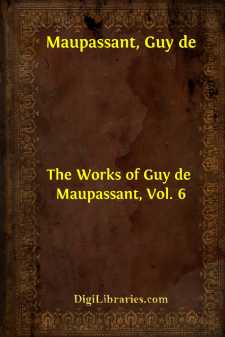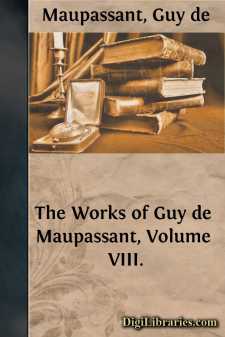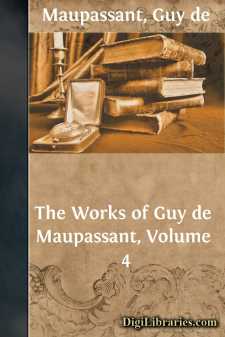Categories
- Antiques & Collectibles 13
- Architecture 36
- Art 48
- Bibles 22
- Biography & Autobiography 813
- Body, Mind & Spirit 142
- Business & Economics 28
- Children's Books 17
- Children's Fiction 14
- Computers 4
- Cooking 94
- Crafts & Hobbies 4
- Drama 346
- Education 46
- Family & Relationships 57
- Fiction 11829
- Games 19
- Gardening 17
- Health & Fitness 34
- History 1377
- House & Home 1
- Humor 147
- Juvenile Fiction 1873
- Juvenile Nonfiction 202
- Language Arts & Disciplines 88
- Law 16
- Literary Collections 686
- Literary Criticism 179
- Mathematics 13
- Medical 41
- Music 40
- Nature 179
- Non-Classifiable 1768
- Performing Arts 7
- Periodicals 1453
- Philosophy 64
- Photography 2
- Poetry 896
- Political Science 203
- Psychology 42
- Reference 154
- Religion 513
- Science 126
- Self-Help 84
- Social Science 81
- Sports & Recreation 34
- Study Aids 3
- Technology & Engineering 59
- Transportation 23
- Travel 463
- True Crime 29
Selected Writings of Guy De Maupassant
Description:
Excerpt
GUY DE MAUPASSANT
Of the French writers of romance of the latter part of the nineteenth century no one made a reputation as quickly as did Guy de Maupassant. Not one has preserved that reputation with more ease, not only during life, but in death. None so completely hides his personality in his glory. In an epoch of the utmost publicity, in which the most insignificant deeds of a celebrated man are spied, recorded, and commented on, the author of "Boule de Suif," of "Pierre et Jean," of "Notre Coeur," found a way of effacing his personality in his work.
Of De Maupassant we know that he was born in Normandy about 1850; that he was the favorite pupil, if one may so express it, the literary protege, of Gustave Flaubert; that he made his debut late in 1880, with a novel inserted in a small collection, published by Emile Zola and his young friends, under the title: "The Soirees of Medan"; that subsequently he did not fail to publish stories and romances every year up to 1891, when a disease of the brain struck him down in the fullness of production; and that he died, finally, in 1893, without having recovered his reason.
We know, too, that he passionately loved a strenuous physical life and long journeys, particularly long journeys upon the sea. He owned a little sailing yacht, named after one of his books, "Bel-Ami," in which he used to sojourn for weeks and months. These meager details are almost the only ones that have been gathered as food for the curiosity of the public.
I leave the legendary side, which is always in evidence in the case of a celebrated man,—that gossip, for example, which avers that Maupassant was a high liver and a worldling. The very number of his volumes is a protest to the contrary. One could not write so large a number of pages in so small a number of years without the virtue of industry, a virtue incompatible with habits of dissipation. This does not mean that the writer of these great romances had no love for pleasure and had not tasted the world, but that for him these were secondary things. The psychology of his work ought, then, to find an interpretation other than that afforded by wholly false or exaggerated anecdotes. I wish to indicate here how this work, illumined by the three or four positive data which I have given, appears to me to demand it.
And first, what does that anxiety to conceal his personality prove, carried as it was to such an extreme degree? The answer rises spontaneously in the minds of those who have studied closely the history of literature. The absolute silence about himself, preserved by one whose position among us was that of a Tourgenief, or of a Merimee, and of a Moliere or a Shakespeare among the classic great, reveals, to a person of instinct, a nervous sensibility of extreme depth. There are many chances for an artist of his kind, however timid, or for one who has some grief, to show the depth of his emotion. To take up again only two of the names just cited, this was the case with the author of "Terres Vierges," and with the writer of "Colomba."
A somewhat minute analysis of the novels and romances of Maupassant would suffice to demonstrate, even if we did not know the nature of the incidents which prompted them, that he also suffered from an excess of nervous emotionalism....












